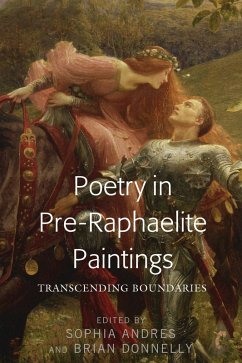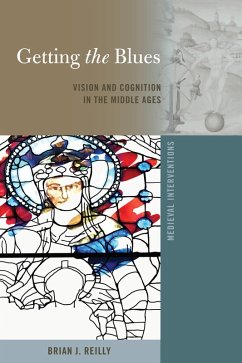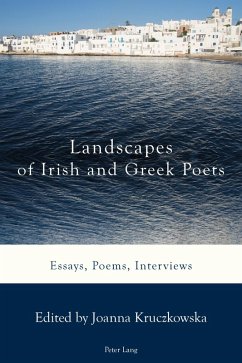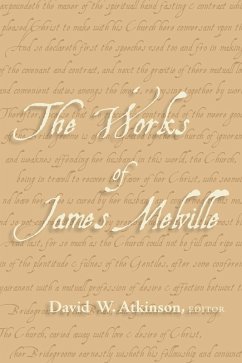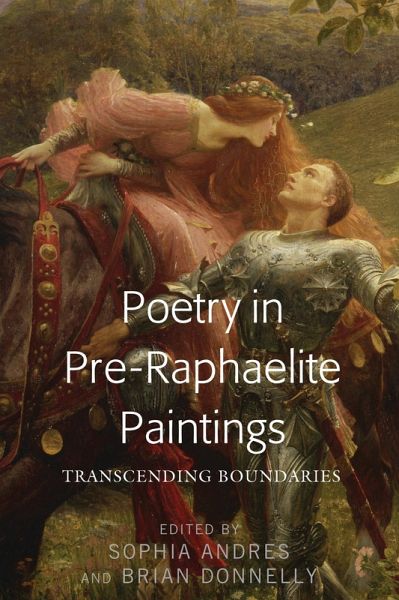
Poetry in Pre-Raphaelite Paintings (eBook, PDF)
Transcending Boundaries
Versandkostenfrei!
Sofort per Download lieferbar
Statt: 107,85 €**
80,95 €
inkl. MwSt.
**Preis der gedruckten Ausgabe (Gebundenes Buch)
Alle Infos zum eBook verschenkenWeitere Ausgaben:

PAYBACK Punkte
40 °P sammeln!
Poetry in Pre-Raphaelite Paintings is an international collection of essays written by seasoned and emerging scholars. This book explores, discusses, and provides new perspectives on Pre-Raphaelite paintings inspired by poems and poems inspired by Pre-Raphaelite paintings, ranging from the inauguration of the movement in 1848 until the end of the nineteenth century. Through a textual and visual journey, this work reflects an innovative approach to Pre-Raphaelite art and Victorian poetry. The rationale in collating this collection of essays is to suggest new approaches for studies in Victorian ...
Poetry in Pre-Raphaelite Paintings is an international collection of essays written by seasoned and emerging scholars. This book explores, discusses, and provides new perspectives on Pre-Raphaelite paintings inspired by poems and poems inspired by Pre-Raphaelite paintings, ranging from the inauguration of the movement in 1848 until the end of the nineteenth century. Through a textual and visual journey, this work reflects an innovative approach to Pre-Raphaelite art and Victorian poetry. The rationale in collating this collection of essays is to suggest new approaches for studies in Victorian visual and verbal art. This collection urges new ways of looking at Pre-Raphaelite art and poetry and its dynamic impact on the changing face of Victorian artistic practices through the second half of the nineteenth century, re-evaluating the extent to which this relatively short-lived movement influenced diverse writers and artists and their work. This book will be of interest to students and scholars of Pre-Raphaelites, Victorian poetry and painting, and the intersection between them.
Dieser Download kann aus rechtlichen Gründen nur mit Rechnungsadresse in A, D ausgeliefert werden.




